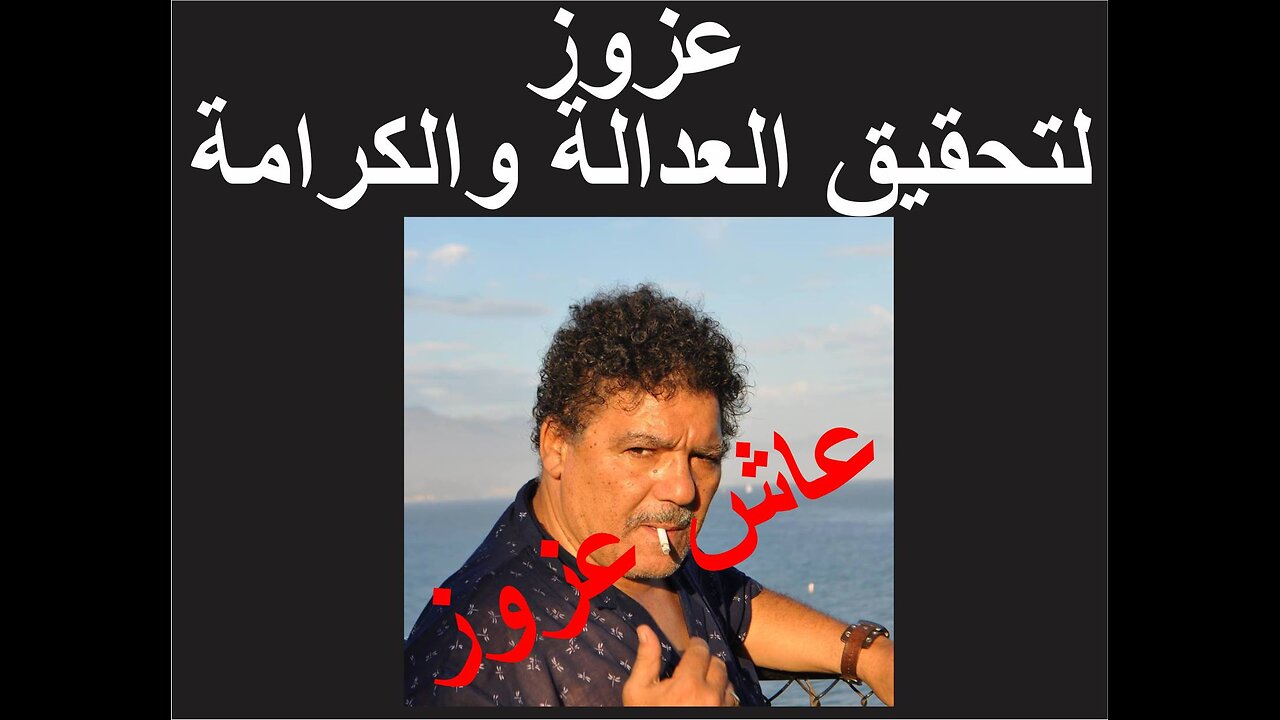Premium Only Content

Questioning Insanity
Since King Mohammed VI ascended to the throne of Morocco in 1999, Human Rights Watch has documented dozens of convictions of journalists and activists on speech-related charges, in violation of their right to freedom of expression. Such trials continue. Alongside them, authorities have refined a different approach for prominent critics, prosecuting them for nonspeech crimes, such as money laundering, espionage, rape and sexual assault, and even human trafficking.
Such serious criminal allegations should be investigated without discrimination, and those responsible should be brought to justice in trials that respect due process and are fair for all parties, Human Rights Watch said. The report assesses whether the trial process in such cases respected international standards governing the right to fair proceedings.
In the trials examined, Human Rights Watch found that dissidents, their relatives, or their associates were convicted based either on charges that by their very nature violated internationally recognized human rights or, when the charges were legitimate, on unfair proceedings that violated numerous fair trial guarantees. Procedural problems included pretrial detention without individualized justification, denying defendants access to their case files for protracted periods, rejecting defense motions to hear and cross-examine materially relevant witnesses, and sentencing jailed defendants in their absence after police failed to take them to court.
In their aggressive pursuit of dissidents, including on serious charges, the authorities have violated the rights of their acquaintances, partners, families, and even people the authorities allege to be their victims.
In one case, a court convicted Afaf Bernani of “defaming the police,” after she accused them of forging a statement in which she appeared to affirm to being sexually assaulted by her former boss, Taoufik Bouachrine, editor of the last critical daily print newspaper in Morocco. Bernani strongly denied ever making such an accusation. Bouachrine was later sentenced to 15 years in prison in 2019 on multiple accounts of sexual assault; Bernani has fled into exile.
Investigations by Amnesty International and the Forbidden Stories journalistic consortium found that Moroccan authorities were behind the hacking of the smartphones of several journalists and rights defenders, alongside possibly thousands of other individuals, using the Pegasus spyware, between 2019 and 2021. Once it infects a smartphone, Pegasus grants government-linked parties unfettered access to all the device’s content.
-
 2:56:44
2:56:44
TimcastIRL
6 hours agoNBA Games RIGGED, 34 Indictments, Democrat Calls It TRUMP'S REVENGE | Timcast IRL
229K108 -
 2:54:13
2:54:13
Laura Loomer
5 hours agoEP152: Texas Man Arrested For Threatening To Kill Laura Loomer
31.1K27 -
 1:34:02
1:34:02
Man in America
9 hours agoEXPOSED: What the Vatican, CIA, & Elites Are HIDING About True Human Potential
44.1K27 -
 3:18:12
3:18:12
Barry Cunningham
6 hours agoJOIN US FOR MOVIE NIGHT! TONIGHT WE FEATURE THE MOVIE RFK LEGACY!
54.5K24 -
 1:13:42
1:13:42
Sarah Westall
7 hours agoHow Bitcoin was Hijacked, Palantir is a Deep State Upgrade & more w/ Aaron Day
33.8K6 -
 15:59
15:59
ArynneWexler
9 hours agoAll The Reasons You're Right to Fear Zohran Mamdani | NN6
19.7K3 -
 LIVE
LIVE
Side Scrollers Podcast
13 hours ago🔴FIRST EVER RUMBLE SUB-A-THON🔴DAY 4🔴BLABS VS STREET FIGHTER!
1,496 watching -
 2:52:41
2:52:41
DLDAfterDark
5 hours ago $2.91 earnedGlock's Decision - How Could It Impact The Industry?
26.5K4 -
 25:57
25:57
The Kevin Trudeau Show Limitless
1 day agoThe Sound Of Control: This Is How They Program You
46K10 -
 8:29
8:29
Colion Noir
16 hours agoThree Masked Idiots Show Up at Her Door — Here’s What Happened Next
52.1K31